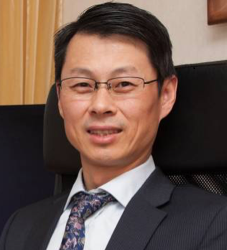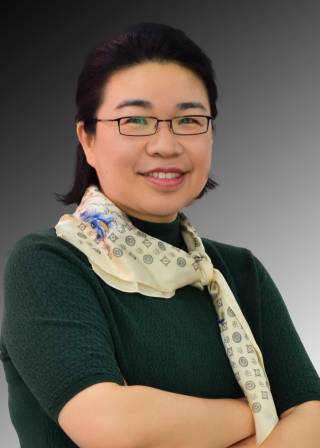Title: Higher education management and leadership from the institutional logics perspective
Time: April, 18 at 13.00-14.30 (Helsinki time)/ 18.00-19.30 (Beijing time)
Lecture description
Lecture recording (the subtitles are coming!)
Institutional logics were initially introduced by Alford and Friedland (1985) and further developed by Thornton and Ocasio (1999) and Thornton et al. (2012) to describe contradictory practices and beliefs inherent in modern societies that shape individuals’ actions and influence institutional changes. The institutional logics perspective is particularly useful in accounting for tensions and dynamics in complex institutional settings. While institutional logics theory has increasingly been applied in higher education research, agreement is lacking on how to approach institutional logics analysis. This lecture will highlight the core thesis of institutional logics theory and introduce how to apply the theory in research on higher education management.
Reading list
Thornton, P. H., & Ocasio, W. (2008). Institutional logics. In R. Greenwood, C. Oliver, K. Sahlin, & R. Suddaby (Eds.), The SAGE handbook of organizational institutionalism (pp. 99-129). Los Angeles ; London: SAGE.
Mountford, N., & Cai, Y. (2022). Towards a flatter ontology of institutional logics: How logics relate in situations of institutional complexity. International Journal of Management Reviews. doi:10.1111/ijmr.12313
Cai, Y., & Mountford, N. (2022). Institutional logics analysis in higher education research. Studies in Higher Education, 47(8), 1627-1651. doi:10.1080/03075079.2021.1946032
Bio notes
 Dr. Yuzhuo Cai is Senior Lecturer and Adjunct Professor at the Higher Education Group (HEG), Faculty of Management and Business, Tampere University, Finland. He has been with the HEG for 20 years and was the Acting Professor of the unit from August 2013 to July 2014. He is the Director of Sino-Finnish Education Research Centre, a network organisation involving over 20 Chinese and Finnish universities, and the Deputy Director of Research Centre on Transnationalism and Transformation (TRANSIT), an interdisciplinary research centre spanning three faculties at Tampere University. He is also in the coordination group of Science, Technology and Innovation (STI) Research Tampere Network and the coordination group of Think Tank for China, SGroup Universities in Europe. He is Editor-in-Chief of Triple Helix and Co-Editor of Journal of Studies in International Education. His main interests are in higher education research and innovation studies, focusing on interactions between higher education and society also on the international dimension. He has published more than 130 academic publications in these fields, including those in prestigious journals, such as Higher Education, Studies in Higher Education, International Journal of Management Reviews, Technovation, Minerva, Science and Public Policy, European Planning Studies and Scientometrics.
Dr. Yuzhuo Cai is Senior Lecturer and Adjunct Professor at the Higher Education Group (HEG), Faculty of Management and Business, Tampere University, Finland. He has been with the HEG for 20 years and was the Acting Professor of the unit from August 2013 to July 2014. He is the Director of Sino-Finnish Education Research Centre, a network organisation involving over 20 Chinese and Finnish universities, and the Deputy Director of Research Centre on Transnationalism and Transformation (TRANSIT), an interdisciplinary research centre spanning three faculties at Tampere University. He is also in the coordination group of Science, Technology and Innovation (STI) Research Tampere Network and the coordination group of Think Tank for China, SGroup Universities in Europe. He is Editor-in-Chief of Triple Helix and Co-Editor of Journal of Studies in International Education. His main interests are in higher education research and innovation studies, focusing on interactions between higher education and society also on the international dimension. He has published more than 130 academic publications in these fields, including those in prestigious journals, such as Higher Education, Studies in Higher Education, International Journal of Management Reviews, Technovation, Minerva, Science and Public Policy, European Planning Studies and Scientometrics.
ResearchGate: https://www.researchgate.net/profile/Yuzhuo_Cai
Google Scholars: https://scholar.google.com/citations?user=-7WAlH4AAAAJ&hl=en
Moderator:
 Dr. Po Yang is an associate professor with tenure, chair of Department of Economics of Education and Administration, at the Graduate School of Education, Peking University, and a research fellow at China Institute of Education Finance Research, Peking University. She serves as the vice president of China Association of Education Finance Research, and has been working as consultant for the World Bank, Asian Development Bank, and Ford Foundation. Her main teaching and research areas of economics of education, education finance, and vocational and technical education reform evaluation. She has working experiences in leading research universities in the U.S.A., and the Netherlands. She has published in peer reviewed SSCI journals and received research grants from China’s National Science Foundation and Ministry of Education.
Dr. Po Yang is an associate professor with tenure, chair of Department of Economics of Education and Administration, at the Graduate School of Education, Peking University, and a research fellow at China Institute of Education Finance Research, Peking University. She serves as the vice president of China Association of Education Finance Research, and has been working as consultant for the World Bank, Asian Development Bank, and Ford Foundation. Her main teaching and research areas of economics of education, education finance, and vocational and technical education reform evaluation. She has working experiences in leading research universities in the U.S.A., and the Netherlands. She has published in peer reviewed SSCI journals and received research grants from China’s National Science Foundation and Ministry of Education.

